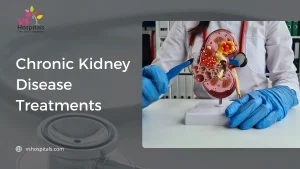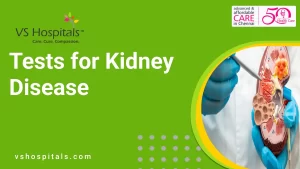Congenital heart failure treatment is crucial for managing heart defects present from birth, which can affect heart structure and overall function. These treatments range from medications to complex surgeries, providing solutions for patients of all ages—whether in pediatric or adult cases. Understanding congenital heart failure and the available treatment options empowers patients and their families to take informed steps toward improved heart health and quality of life.
What is Congenital Heart Failure?
Congenital heart failure is a condition in which structural heart defects, present from birth, lead to impaired heart function. This condition affects the heart’s ability to pump blood efficiently, impacting oxygen flow throughout the body. Congenital heart failure treatment can help manage symptoms and improve heart function over time.
Key aspects of congenital heart failure include:
- Heart Defects: Malformations in the heart’s structure, such as holes in heart walls or abnormal valves
- Blood Flow Issues: Reduced blood circulation due to restricted or misdirected blood flow
- Oxygen Levels: Reduced oxygen delivery to the body, causing fatigue and shortness of breath
Effective congenital heart failure treatment options can significantly improve patients’ quality of life and health outcomes.
Types of Congenital Heart Failure
Understanding the types of congenital heart failure is essential in choosing the right congenital heart failure treatment. Heart defects vary widely, impacting how blood flows through the heart and how the heart functions overall. Here are a few main types:
- Pediatric Heart Defects: Conditions diagnosed in infancy or childhood that often require early intervention to support healthy growth.
- Congenital Heart Disease in Adults: Sometimes, heart defects go undiagnosed until adulthood, requiring unique congenital heart disease treatment in adults.
- Congenital Heart Block: This condition disrupts the heart’s natural rhythm and often necessitates congenital heart block treatment for stable heart function.
Each type may need tailored treatments depending on age, symptoms, and severity.
Symptoms of Congenital Heart Failure
Recognizing the symptoms of congenital heart failure early can lead to timely and effective congenital heart failure treatment. These symptoms vary based on the type and severity of the condition and can be present at birth or develop over time. Common signs include:
- Shortness of breath during physical activities or even at rest
- Swelling in the legs, ankles, and abdomen due to fluid buildup
- Fatigue and low energy levels, especially in young children
- Rapid or irregular heartbeat, which may indicate congenital heart block
These symptoms signal the need for a comprehensive assessment to determine the appropriate congenital heart failure treatment approach.
Causes of Congenital Heart Failure
Congenital heart failure has various causes, often linked to factors that impact heart development before birth. Identifying these causes is vital in understanding the need for effective congenital heart failure treatment and helps healthcare providers design the right management plan.
Common causes include:
- Genetic Factors: Inherited conditions or mutations that interfere with normal heart formation.
- Maternal Health: Illnesses during pregnancy, such as diabetes or infections, can increase risks.
- Medications and Toxins: Certain drugs, alcohol, and environmental toxins can impact fetal heart development.
- Lifestyle and Nutrition: A lack of essential nutrients or exposure to harmful substances early in pregnancy may elevate risk.
Awareness of these causes helps guide preventive care and timely treatment.
Treatment for Congenital Heart Failure
Congenital heart failure treatment varies by the severity and type of heart defect. The following are the primary options used in managing congenital heart conditions:
Medications for Congenital Heart Failure
Medications play a key role in congenital heart failure treatment, helping to manage symptoms and improve heart function.
Blood Pressure Medications
These drugs, such as ACE inhibitors and beta-blockers, help reduce the heart’s workload by lowering blood pressure. By easing strain on the heart muscle, they improve blood flow and prevent further complications, making it easier for the heart to function efficiently.
Diuretics
Diuretics, often called “water pills,” work by removing excess fluids and sodium from the body, reducing swelling and lowering blood pressure. This medication eases the heart’s workload, allowing it to pump more effectively, which helps relieve common heart failure symptoms like shortness of breath.
Anti-Arrhythmics
Anti-arrhythmic medications help regulate an irregular heartbeat, which is common in heart failure patients. By stabilizing the heart’s rhythm, these drugs ensure a steady blood flow, reducing the risk of serious complications and improving overall heart performance in patients with congenital heart defects.
Surgical Procedures for Congenital Heart Failure
When congenital heart failure is severe, surgery often becomes necessary. Below are common surgical options for treating complex heart defects.
Cardiac Catheterization
This minimally invasive procedure uses a catheter to access and repair heart defects. It improves blood flow by widening or repairing vessels, often serving as an alternative to open-heart surgery for certain congenital conditions, reducing recovery time and improving patient outcomes.
Heart Surgery
Open-heart surgery is performed to correct structural heart defects, restoring proper blood flow and heart function. Surgeons repair abnormal heart structures, which provides long-lasting relief for patients with severe congenital heart issues and improves overall heart health.
Heart Transplant
For end-stage heart failure cases, a heart transplant replaces the damaged heart with a healthy donor heart. This procedure offers a new beginning for patients who haven’t responded to other treatments, providing a significantly improved quality of life and heart function.
Fetal Cardiac Intervention
This advanced procedure treats heart defects in unborn babies. By addressing congenital heart issues before birth, fetal cardiac intervention improves survival rates and post-delivery health. This proactive approach in congenital heart failure treatment reduces risks associated with complex heart defects.
Conclusion
Congenital heart failure treatment provides essential options for managing heart defects present from birth, supporting both children and adults affected by this condition. With advancements in medications, surgical procedures, and specialized care, patients now have greater opportunities for improved heart function and quality of life. At VS Hospitals, our expert team is dedicated to delivering personalized congenital heart failure treatment, guiding patients and families every step of the way toward better health and peace of mind.




